Art
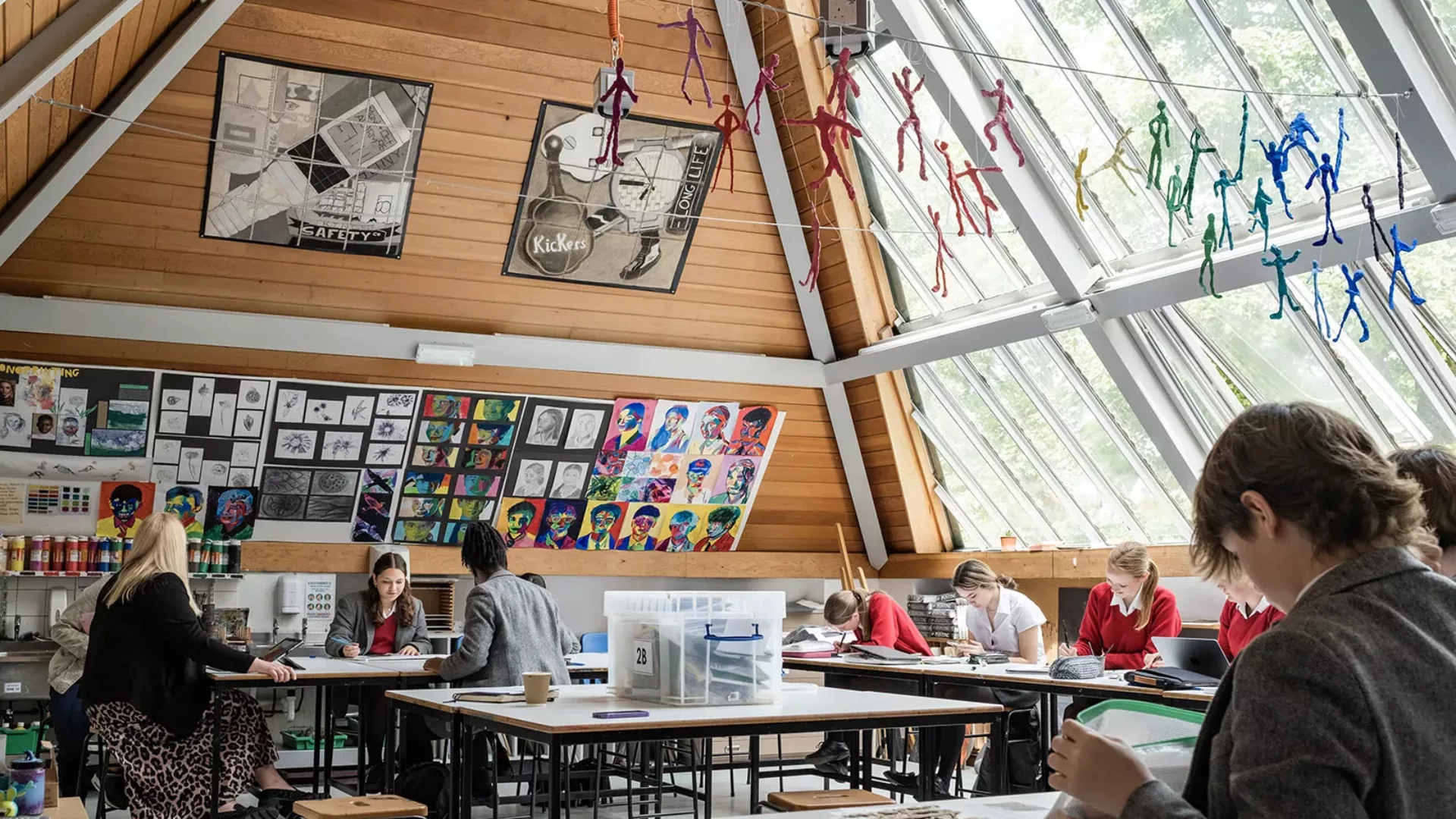
The departmental approach is lively, friendly, but focused. We encourage and teach personal expression, imagination, curiosity, sensitivity, conceptual thinking, powers of observation, analytical ability and practical skills.
We hope that every Art student at LWC will widen their horizons and enrich their individual personal responses. As a result, particular enjoyment and aesthetic pleasure are experienced and self-confidence is gained.
Head of Department: Graham Mobbs
1st – 3rd Form
-
In 1st – 3rd Form, students undertake a programme of study and are given grounding in all the main disciplines.
-
They work using their sketchbooks to develop and record visual stimuli, and are given the opportunity to express their ideas and feelings through individual responses to projects.
-
All work is assessed and recorded with the use of portfolio presentation of the student’s attainment.
-
We hope that during the first three years their appreciation of art is developed and self-confidence to express one’s self is instilled.
-
As part of the extended art programme, students in the 1st and 2nd Forms are offered the chance to develop their skills further by attending the Pre Art Scholars group.
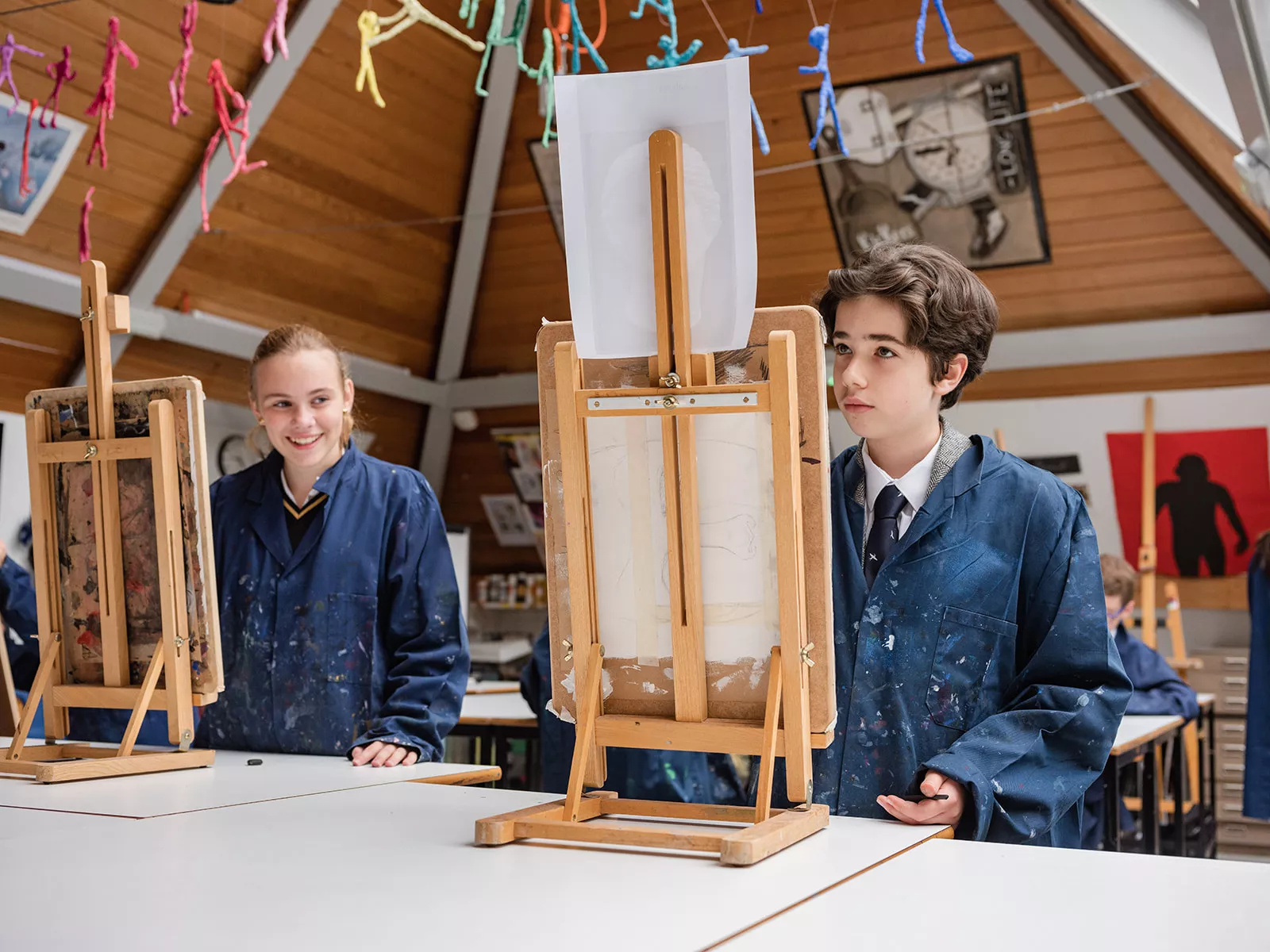
GCSE
Exam Board: OCR
- In the Fourth Form, students opt for GCSE Art (Fine Art or 3D Studies), which offers students the necessary breadth and depth of study with the freedom of choice to accommodate a wide range of abilities.
- At the end of the course, students present a portfolio of project work and an exam piece, which can be in the student’s preferred medium.
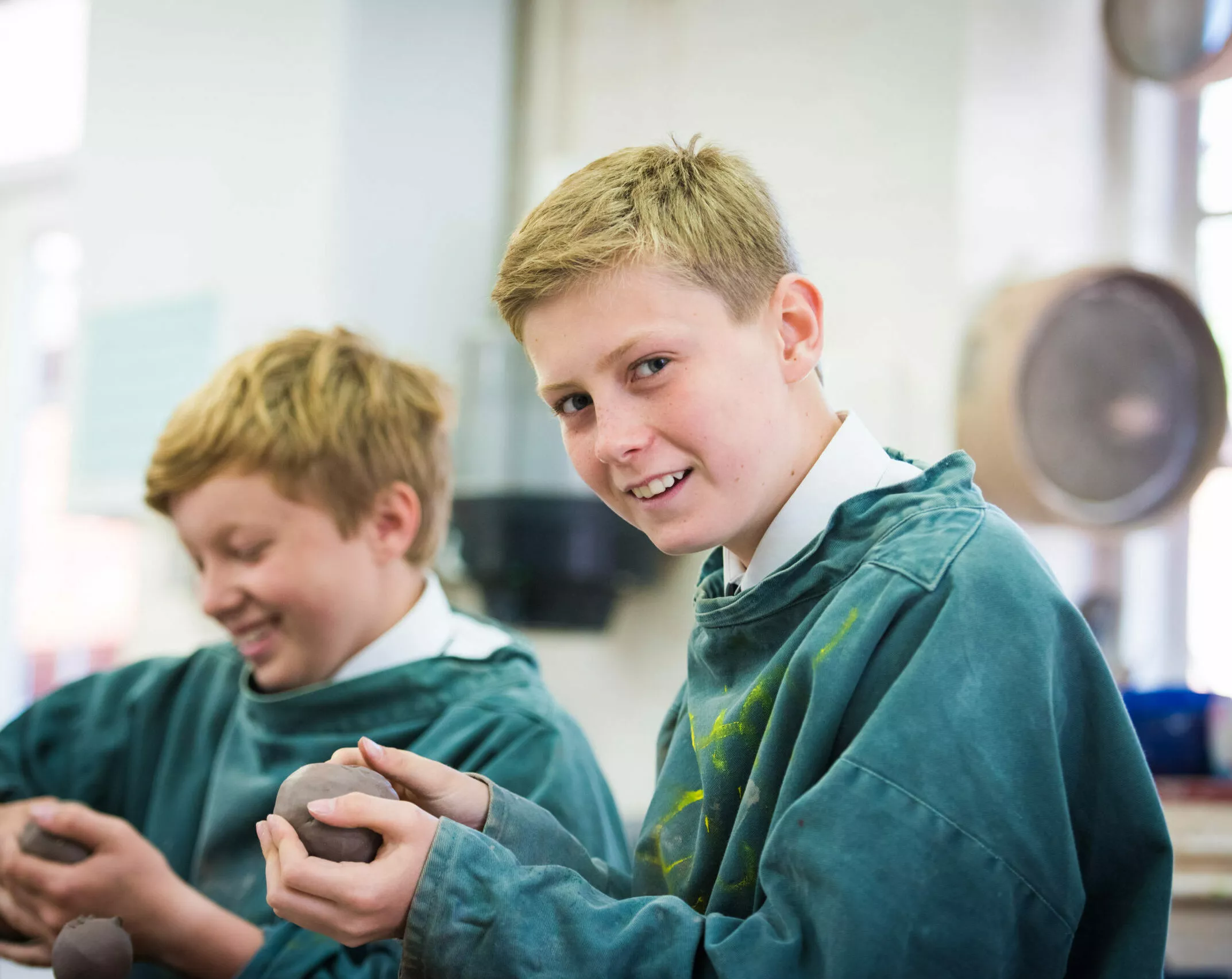
A Level
Fine Art – Exam Board: Edexcel
- Focus on investigation and enquiry
- Encouraging and developing students’ skills at a more advanced level
- Opportunity to specialise in a given media
- Portfolio – this also relates closely to any Art School application
- Critical and Contextual study – 2000- 3000 word essay giving contextual and historical awareness
- Exteranlly set assignment – titles set by the exam board. A period of personal investigation into these themes and a 15 hour focused session to produce an outcome/s.
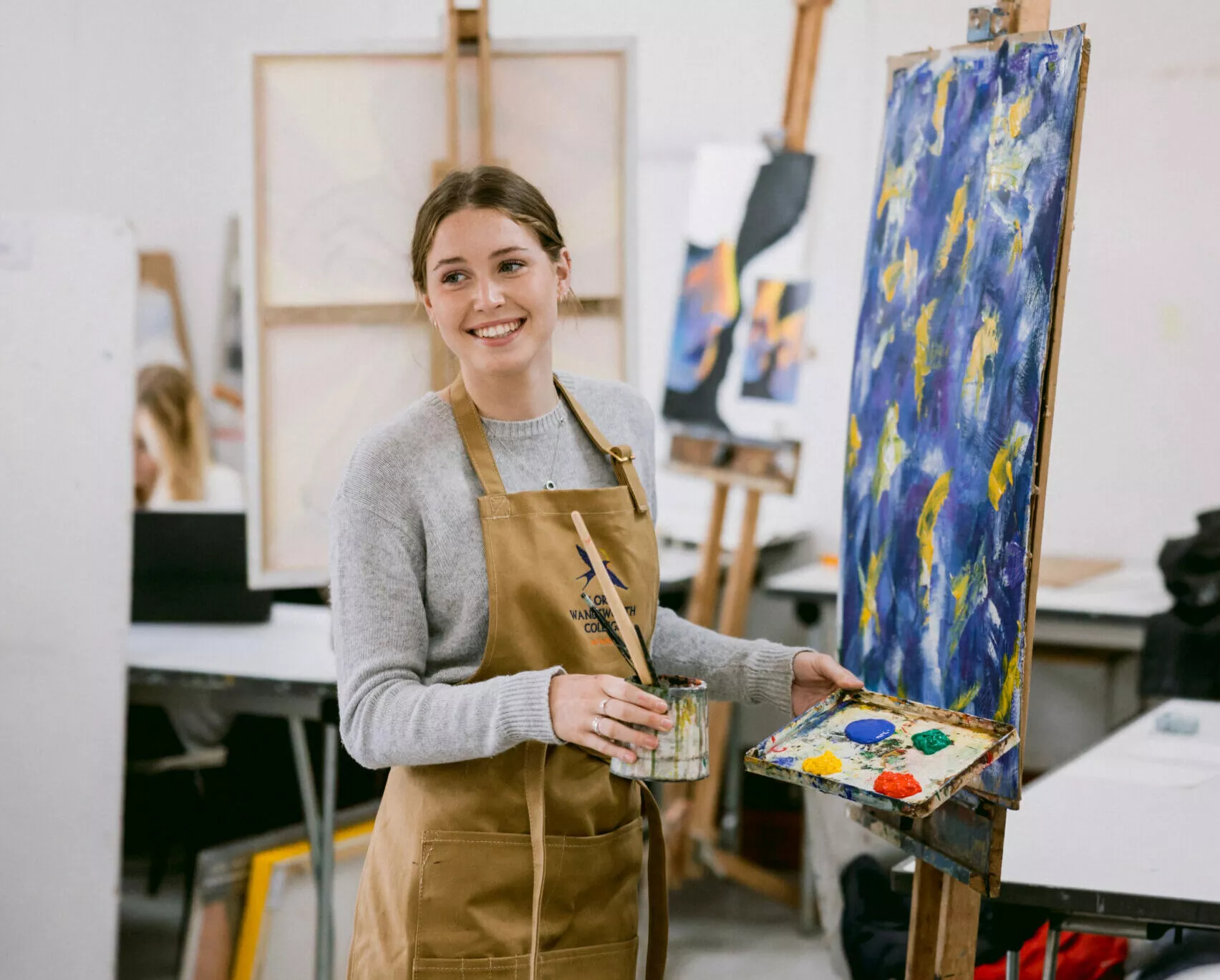
Photography
Exam Board: AQA
-
Explore a range of traditional and digital photography techniques and processes
-
Opportunities to work in a range of genres from fashion, landscape, still life, documentary and fine art
-
Develop exciting and experimental processes, where the emphasis is on creative thinking and problem solving
-
Create a portfolio which can be used for any Art School application
-
Critical supporting essay, which documents contextual analysis and research created throughout a personal investigation – 1000-3000 words
-
Exteranlly set assignment – titles set by the exam board. A period of personal investigation into these themes and a 15 hour focused session to produce an outcome/s.
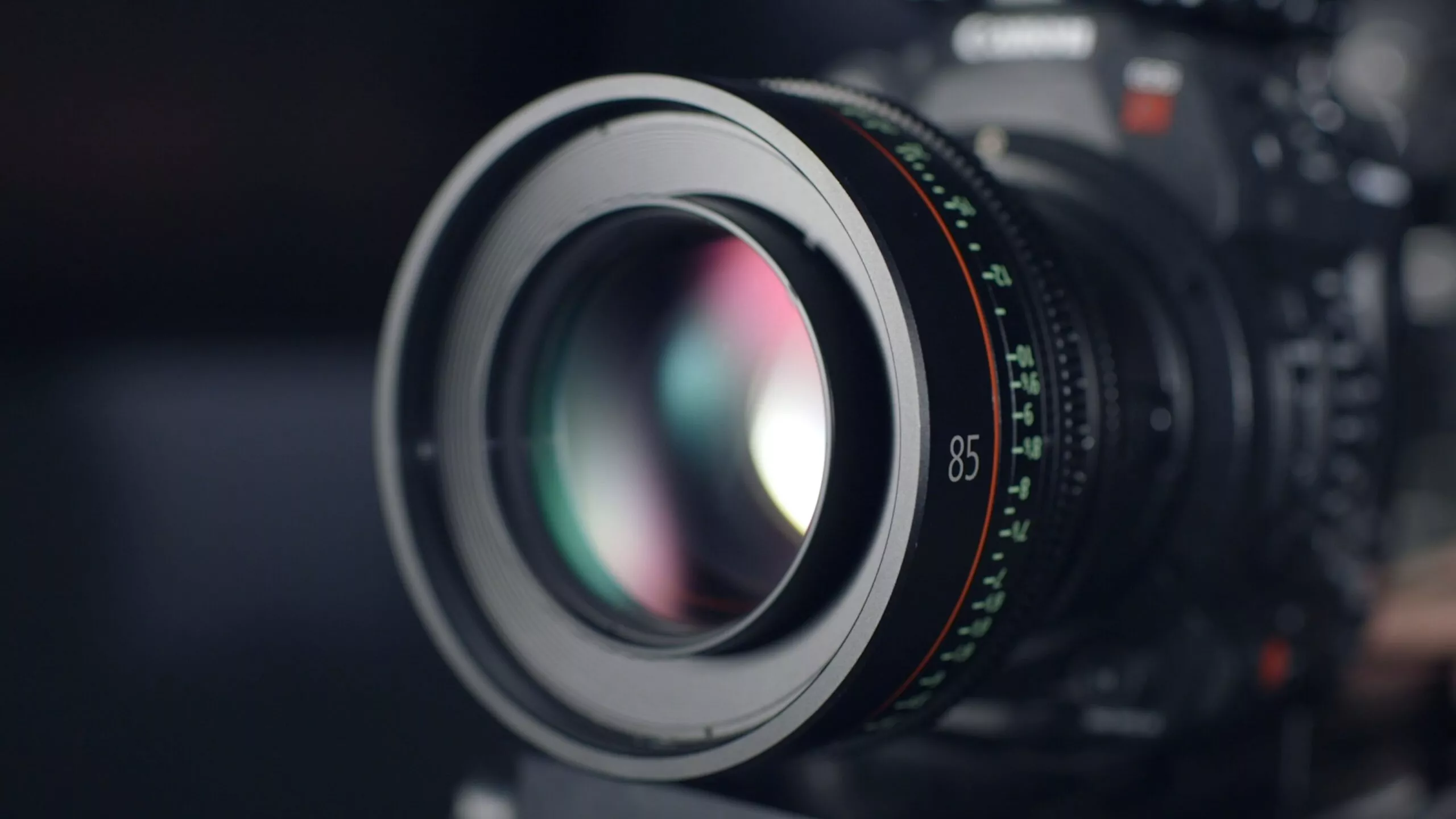
-
Facilities
The Newly refurbished Art School offers a suite of studios where painting, drawing, sculpture, photography & film, ceramics and printing can be pursued. There are two main studios, a dedicated 6th Form studio, a ceramic studio, Photography studio, Darkroom, critical studies and computer / media resource area, specialised Art Library and a tutorial area.
-
PRIDEAUX GALLERY
The modern gallery offers a range of exhibitions throughout the year. These include exhibitions by visiting Artists, touring collections from National Galleries and student shows. The Gallery forms an important part of the Art enrichment and culture at LWC and is open to students and parents.
-
WHY STUDY ART AT LWC?
• The Art School offers an excellent range of facilities and resources.
• There is considerable activity outside timetabled lessons.
• All Art students enter the national Articulate competition. Finals are held at the National Gallery London
• A high proportion of 6th form students go on to further Art education including foundation courses, Fine Art, Illustration, Sculpture, Printmaking, Fashion and Textiles, Graphics and Design, Film and Media Studies, Architecture, History of Art. Industrial Design , Engineering at top creative universities across the UK including London Art schools, The Slade, Oxford, Cambridge, Bournemouth, Manchester, Nottingham, Loughborough and Falmouth.
• Art students regularly fulfil leadership roles in running activities and workshops.
• Opportunities to work on independent projects through the Art School’s twinning programme with other subjects such as English, History and Science.
• The Seven Art staff are all practising artists and make a strong
and effective team.
• Students’ artwork is on permanent display around the College.
• We organise regular visits to art colleges, galleries and exhibitions both locally, in London and abroad.
• Facilities for U6 Art students rival those offered at art colleges and universities with individual and modern studio space.
• Excellent advice and support offered for post 18 education applications to top art colleges and university courses. Students are often accepted on their first choice courses.
• 1st and 2nd Formers have their own exhibition space, competitions and specially designed art activities.
• The 3rd Form has a integrated syllabus introducing them to all the main skills and medium required for studying art at GCSE in both three and two dimensions.
• The school’s location provides an inspiring environment in which to work artistically. From working in traditional approaches in painting and drawing to working with natural materials to build sculptures in the school’s outstanding landscape.
• IT is increasingly being developed including film, photography and gaming Art.
The Newly refurbished Art School offers a suite of studios where painting, drawing, sculpture, photography & film, ceramics and printing can be pursued. There are two main studios, a dedicated 6th Form studio, a ceramic studio, Photography studio, Darkroom, critical studies and computer / media resource area, specialised Art Library and a tutorial area.
The modern gallery offers a range of exhibitions throughout the year. These include exhibitions by visiting Artists, touring collections from National Galleries and student shows. The Gallery forms an important part of the Art enrichment and culture at LWC and is open to students and parents.
• The Art School offers an excellent range of facilities and resources.
• There is considerable activity outside timetabled lessons.
• All Art students enter the national Articulate competition. Finals are held at the National Gallery London
• A high proportion of 6th form students go on to further Art education including foundation courses, Fine Art, Illustration, Sculpture, Printmaking, Fashion and Textiles, Graphics and Design, Film and Media Studies, Architecture, History of Art. Industrial Design , Engineering at top creative universities across the UK including London Art schools, The Slade, Oxford, Cambridge, Bournemouth, Manchester, Nottingham, Loughborough and Falmouth.
• Art students regularly fulfil leadership roles in running activities and workshops.
• Opportunities to work on independent projects through the Art School’s twinning programme with other subjects such as English, History and Science.
• The Seven Art staff are all practising artists and make a strong
and effective team.
• Students’ artwork is on permanent display around the College.
• We organise regular visits to art colleges, galleries and exhibitions both locally, in London and abroad.
• Facilities for U6 Art students rival those offered at art colleges and universities with individual and modern studio space.
• Excellent advice and support offered for post 18 education applications to top art colleges and university courses. Students are often accepted on their first choice courses.
• 1st and 2nd Formers have their own exhibition space, competitions and specially designed art activities.
• The 3rd Form has a integrated syllabus introducing them to all the main skills and medium required for studying art at GCSE in both three and two dimensions.
• The school’s location provides an inspiring environment in which to work artistically. From working in traditional approaches in painting and drawing to working with natural materials to build sculptures in the school’s outstanding landscape.
• IT is increasingly being developed including film, photography and gaming Art.